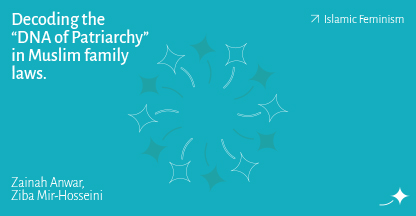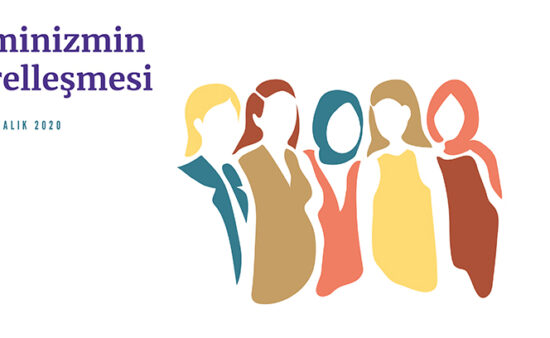December 19, 2020

The 2000s has been a period in which the studies on women’s history are plenteous. The books titled Kadınsız İnkılap (Womanless Revolution) (2003) and Bir Adalet Feryadı; Osmanlı’dan Türkiye’ye Beş Ermeni Feminist Yazar 1862-1933 (A Cry for Justice: Five Armenian Feminist Writers from the Ottoman Empire to the Turkish Republic (1862-1933)) (2006) are undoubtedly the most striking among these studies.
We can say that dynamics of breaking up and rallying among Turkey feminism were encountered at the same time. While there had been breakups on the basis of ideological and political differences, feminist women who advocated similar political views rallied and get organized within certain structures. Women who rallied with the call of Amargi Magazine in 2006 were to adopt a policy on a more common ground with the establishments of the Sosyalist Feminist Kolektif (Socialist Feminist Collective) in 2008 and Barış İçin Kadın Girişimi (Women Initiative for Peace) in 2009. One of the tools that made the feminist movement rally with the trade union movement had been the Petrol-İş Women’s Magazine which had been published every two months by the Petrol-İş Union starting from the January of 2003. Kadın Emeği ve İstihdamı Girişimi [Women’s Labor and Employment Initiative] founded in 2006 had dealt with the way women participate in employment. In 2010, Göçmen Dayanışma Ağı (Immigrant Solidarity Network) had been established.
The 2000s have been a period of legal acquisitions. Transformations within the Civil Code and the Turkish Penal Code made as the result of women’s struggle have made the concept of “lobbying” become the focus of political discussions among the feminists as well as project feminism. For this period, a women’s movement was at stake where feminists and non-feminist groups rallied together. Organizations such as platforms and coalitions may also be counted as those movements. Paving the way for women’s solidarity through women’s labour had especially become prominent with the impact of the “Novamed Strike” since 2007. A women’s solidarity campaign that sets a good example of union-feminist movement collaboration during the strike held in Novamed which was a women’s-dominated workplace in Antalya Free Zone was established through Petrol-İş Women’s Magazine in 2006. At Novamed, solidarity between an independent women’s movement and women union members was in question. This solidarity was led by these feminists. The Novamed experience has made women studies gain ground within the union as well as paved the way for the feminist movement to recover.
The 2000s are a period where the most severe losses were caused due to male violence. In this context, it is necessary to mention the “We are in revolt against femicide” campaign of İstanbul Feminist Kolektif (Istanbul Feminist Collective) in 2010 and the campaigns on making “unjust provocation” namely maleness reduction visible. Again in the second half of the 2000s, the diffusion of the principle of “women’s statement” was one of the most important achievements of feminists, while another of these achievements had been the Law No. 6284 on the Protection of the Family and the Prevention of Violence Against Women. However, during this period, the government’s attempts to abolish this law with the familism policies commenced and the Ministry of Women was transformed into the Ministry of Family and Social Policies. Abortion prohibition was added to the agenda, divorce was made inconvenient, limitations on alimonies came into question, care labour and discussions about impositions on maternity gained more importance. The Presidency of Religious Affairs was transformed into a tool for social policies, and an ideological struggle was caused to be initiated by circulating the concept of gender justice instead of gender equality. While mentioning the activities of the feminist movement in these years, it is necessary to refer to various campaigns conducted by several different groups. In this regard, the campaigns initiated by Cinayetlere Karşı Acil Eylem
Grubu (Emergency Action Group Against Murders) in 2014 aimed to draw attention to the increase in femicide and the insufficiency of preventive policies are important. During this period, the Socialist Feminist Collective had launched the campaigns “We Want Our Due Back From Men” and “There Is Life Outside The Family”. In 2015, the “Women Claim Their Lives” campaign became prominent. Its aim was to make “killing in order not to die”, “killing against systematic violence” and the ways of the struggle of women such as Nevin Yıldırım, Yasemin Çakal and Çilem visible.
While Turkey’s feminist movement has continued to institutionalize and begun to take active roles in legal regulations on women in the 2000s, its borders have begun expanding with different identity struggles gaining strength and confrontations on different platforms and efforts on creating common grounds increase. This period continues to be a period in which hierarchical differences in society such as ethnic identity, sexual identity, sexual orientation, class, and religion are the subject of feminism, a period where solidarity gains ground and feminism diversifies, and where the discussions on who the subject of feminism continue.
With LGBTI + movement gained strength in the second half of the 2000s, and the rise of queer formations within the feminist groups, created a transformation in feminist politics, including the discussions on heterosexism, homophobia and transphobia, which were further questioned within. In terms of relations with the Kurdish women’s movement, the 2000s were a period where Kurdish women became autonomous within the movement and where their mass empowerment, their determination on transforming the ideological structure of the Kurdish movement and their insistence on rallying with women on common platforms strengthened their ties with the feminist movement. Their efforts to understand each other and make politics together lead them to establish new and closer relationships.
Muslim women, on the other hand, had held monthly meetings from 2007 to 2008 via the e-mail group titled “We Protect Each Other” and had started to discuss where feminists and Muslim women can establish partnerships. The formations that emerged within this wing are Kadına Şiddete Karşı Müslümanlar İnisiyatifi (Muslims Against Violence Against Women Initiative) (KŞKMİ) which was established in 2013, Reçel Blog which started broadcasting in 2014, and Havle Association which was established in 2018.
In addition, they are important in terms of discussing the importance of being a feminist at universities, considering that the cases of sexual harassment and assault have been publicized and that there have been cases of harassment and violence that include “respected” male university teachers.
Briefly, when we consider the publications aspect, it is seen that the number of translated and royalty books on feminism had increased in the 2010s and that two feminist publishing houses were established: Ayizi Kitap (2010) and Güldünya Publishing House (2014). In addition, websites and blogs that reflect different feminisms or feminist agendas such as 5Harfliler, Reçel Blog, Çatlak Zemin, Erktolia, Yalnız Yürümeyeceksin (You Won’t Walk Alone), Dijital Topuklar as well as Kültür ve Siyasette Feminist Yaklaşımlar (Feminist Approaches in Culture and Politics) and magazines in the field of academic and online feminist publishing such as fe magazine, which is the international journal of Ankara Üniversitesi Kadın Sorunları Araştırma ve Uygulama Merkezi (Ankara University Women’s Issues Research and Application Center), online archive sites such as the website established by Kadın Kültür ve İletişim Vakfı (Women’s Culture and Communication Foundation) in order for people to access the past issues of Pazartesi, Feminist and Kaktüs magazines, Kadın Eserleri Kütüphanesi (Women’s Works Library) website and Amargi Magazine and Feminist Politika (Feminist Policy) magazine websites can be listed as various examples that make up the feminist blogosphere in question.
In the 2000s, while women’s labour, violence against women and history has been continued to be studied from a feminist perspective in universities, areas such as ethnicity, identity, body, masculinity, media, militarism and nationalism have also begun to be studied intensively. Queer studies continue at full speed as a new discipline. The “March 8 Feminist Night Walk” which has been held since 2003, became widespread after Gezi and makes us gain more strength.
The first draft of this article, with the title “Being a Feminist in the 2000s”, was presented on December 19, 2020, at the “Being an Immigrant Woman Within the Local Movement” conference organized by Havle Women’s Association. You can click here to access other texts of our Feminism Localization conference.

